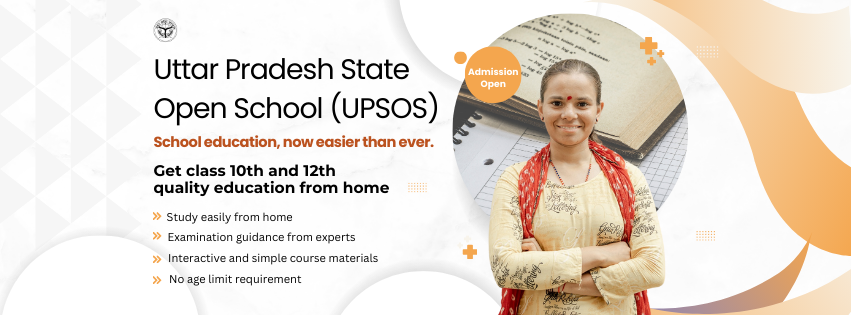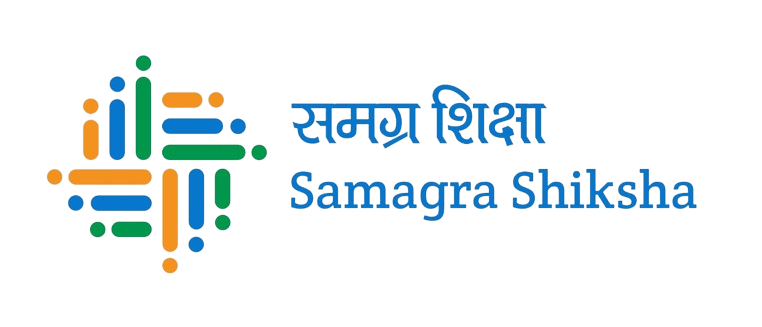Holistic Approach to Education
Consider school education as a continuum from preschool to class 12, integrating both senior secondary and preschool levels to support school education for the first time.
Administrative Reforms
Establish a single and unified administrative structure for harmonious implementation, allowing states the flexibility to prioritize their interventions under the scheme. The integrated administration views 'school' as a continuous entity.
Focus on Quality Education
Emphasis on two key elements—teachers and technology. Strengthening teacher education institutions like SCERT and DIET to enhance the capacity of teachers and school heads, and improve the quality of prospective teachers. SCERT will serve as the nodal agency for both in-service and pre-service teacher training, making the training dynamic and needs-based. The National Innovation Campaign will support the promotion of science and mathematics learning. Additionally, the *Padhe Bharat, Badhe Bharat* program will aid in developing foundational skills at the primary level. Provision for library grants ranging from ₹5,000 to ₹20,000 for each school.
Focus on Digital Education
Support the implementation of 'Operation Digital Board' in all secondary schools over the next 5 years, revolutionizing education through easily understandable, technology-based learning. This will transform classrooms into flipped classrooms.
Enhance the use of digital technology in education through smart classrooms, digital boards, and DTH channels, from upper primary to senior secondary levels. Strengthen ICT infrastructure and promote digital initiatives like UDISE+ and Shagun.
Strengthening Schools
Provide advanced transportation facilities for children in classes I to VIII to ensure universal access to schools. The overall school grant has been increased from ₹14,500-50,000 to ₹25,000-1 lakh, allocated based on school enrollment. Specific provisions for sanitation activities—supporting 'Clean Schools' to improve the quality of infrastructure in government schools.
Focus on Girls’ Education
Upgrade Kasturba Gandhi Balika Vidyalayas (KGBVs) from classes 6-8 to classes 6-12. Provide self-defense training for girls from upper primary to senior secondary levels. Increased commitment to 'Beti Bachao, Beti Padhao.'
Focus on Inclusion
The allocation for uniforms under the RTE Act has been increased from ₹400 to ₹600 per child per year.
The allocation for textbooks under the RTE Act has been increased from ₹150/250 to ₹250/400 per child per year, with energetic textbooks to be introduced. The allocation for children with special needs (CWSN) has been increased from ₹3,000 to ₹3,500 per child per year. A stipend of ₹200 per month will be provided for girls with special needs from class 1 to 12.
Focus on Skill Development
Increase the emphasis on vocational skills at the upper primary level. Integrate vocational education with the curriculum for classes 9-12, making it more practical and industry-oriented. Emphasize 'Skill Development.
Focus on Sports and Physical Education
Sports education is an integral part of the curriculum. Each school will receive sports equipment costing ₹5,000 for primary schools, up to ₹10,000 for upper primary schools, and ₹25,000 for secondary and senior secondary schools to enhance and emphasize the relevance of sports.

Holistic Approach to Education
Consider school education as a continuum from preschool to class 12, integrating both senior secondary and preschool levels to support school education for the first time.
Administrative Reforms
Establish a single and unified administrative structure for harmonious implementation, allowing states the flexibility to prioritize their interventions under the scheme. The integrated administration views 'school' as a continuous entity.
Focus on Quality Education
Emphasis on two key elements—teachers and technology. Strengthening teacher education institutions like SCERT and DIET to enhance the capacity of teachers and school heads, and improve the quality of prospective teachers. SCERT will serve as the nodal agency for both in-service and pre-service teacher training, making the training dynamic and needs-based. The National Innovation Campaign will support the promotion of science and mathematics learning. Additionally, the *Padhe Bharat, Badhe Bharat* program will aid in developing foundational skills at the primary level. Provision for library grants ranging from ₹5,000 to ₹20,000 for each school.
Focus on Digital Education
Support the implementation of 'Operation Digital Board' in all secondary schools over the next 5 years, revolutionizing education through easily understandable, technology-based learning. This will transform classrooms into flipped classrooms.
Enhance the use of digital technology in education through smart classrooms, digital boards, and DTH channels, from upper primary to senior secondary levels. Strengthen ICT infrastructure and promote digital initiatives like UDISE+ and Shagun.
Strengthening Schools
Provide advanced transportation facilities for children in classes I to VIII to ensure universal access to schools. The overall school grant has been increased from ₹14,500-50,000 to ₹25,000-1 lakh, allocated based on school enrollment. Specific provisions for sanitation activities—supporting 'Clean Schools' to improve the quality of infrastructure in government schools.
Focus on Girls’ Education
Upgrade Kasturba Gandhi Balika Vidyalayas (KGBVs) from classes 6-8 to classes 6-12. Provide self-defense training for girls from upper primary to senior secondary levels. Increased commitment to 'Beti Bachao, Beti Padhao.'
Focus on Inclusion
The allocation for uniforms under the RTE Act has been increased from ₹400 to ₹600 per child per year.
The allocation for textbooks under the RTE Act has been increased from ₹150/250 to ₹250/400 per child per year, with energetic textbooks to be introduced. The allocation for children with special needs (CWSN) has been increased from ₹3,000 to ₹3,500 per child per year. A stipend of ₹200 per month will be provided for girls with special needs from class 1 to 12.
Focus on Skill Development
Increase the emphasis on vocational skills at the upper primary level. Integrate vocational education with the curriculum for classes 9-12, making it more practical and industry-oriented. Emphasize 'Skill Development.
Focus on Sports and Physical Education
Sports education is an integral part of the curriculum. Each school will receive sports equipment costing ₹5,000 for primary schools, up to ₹10,000 for upper primary schools, and ₹25,000 for secondary and senior secondary schools to enhance and emphasize the relevance of sports.














